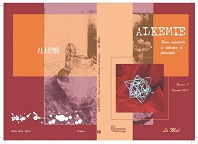





Keywords: Evil; sin; Gnostics; Manichaeism; morality; symbolisation; theodicy
Whatever conceptions we develop in the western world about the origin and the nature of evil, it is impossible to avoid referring to the biblical text, Genesis 3. The many different interpretations that are made of this text invoke it less in order to read what it says, than in order to transform it into an illustration or a theological legitimation that post‑dates its creation. I will demonstrate how the concept of original sin develops in Christianity and conflicts with the Gnostic, the Christian and the Jew; however it is also necessary to return to the text, to interpret it from a position that is first of all philosophical and upon the basis of a hermeneutic that responds to its unique qualities before inscribing it into this or that dogmatic interpretation. The reflections of Ricoeur and Nabert upon sin and evil are tested out on Genesis 3 on the basis of a concept of the processes of symbolisation developed by Kant and, in our time, by Blumenberg.
More...
Keywords: Philosophy; spirit; thought; Cioran; Virilio; Kant; ascesis; shape; effort; mania
Our reflections attempt to capture the spasmodic confrontation between philosopher and idea, and to convey the intricate mechanisms involved in circumscribing and mapping out one’s own spirit.
More...
Keywords: evil; Camus; Cioran
The introduction to issue 8 of Alkemie points to Camus and Cioran.
More...











